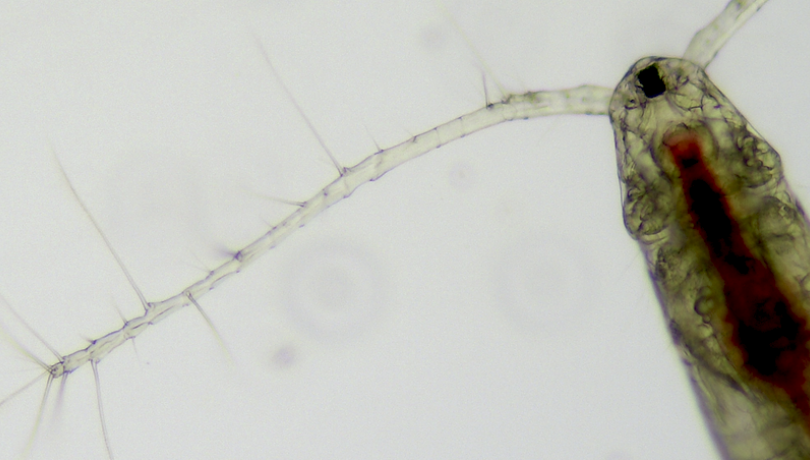This is the main conclusion of a study led by the ICM-CSIC that analyzes the impact of rising water temperature on the metabolic activity of this key group of marine plankton.

A new study led by the Institut de Ciències del Mar (ICM-CSIC) in Barcelona proves that copepods, a group of small crustaceans that are part of the marine plankton, are able to adapt to rising ocean temperatures, and do so by adjusting their metabolic activity across different generations during which their response to the changes is attenuated.
Studying the effects of water warming on copepods is key, as they act as a link between lower and upper levels of the marine food chain and are the main dietary basis for fish larvae and other marine organisms. They also play a key role in marine biogeochemical cycles, contributing to nutrient recycling and carbon sequestration at the bottom of the ocean.
"Our work shows that the physiological response of copepods to rising water temperature is attenuated across generations", explains Carlos de Juan, the study's lead author, who stresses the need to consider a sufficiently broad time scale in studies like this one to obtain a more accurate picture of the effects of warming on marine life.
An adaptive response
To carry out the study, recently published in the journal Limnology and Oceanography, the authors exposed copepods of the species Paracartia grani to higher temperatures than those to which they were used to for multiple generations and measured their metabolic rates and other important characteristics of their life cycle.
As a result, they found that, apart from decreasing in size, the organisms were less sensitive to increasing water temperature across generations, which could have important implications for higher trophic levels and marine biogeochemical cycles.
Previous studies had documented the physiological response of these and other marine organisms to short-term warming. However, this is one of the few that considers a time scale broad enough to notice how responses attenuate across generations, which is critical for improving our understanding of the marine organisms’ response to climate change.
"Some of the parameters used to feed predictive models of temperature effects on marine plankton come from experiments that estimate the effects of temperature on the short-term physiology of organisms, which are considerably larger. Therefore, it is important to extend the time scale of the studies if we do not want to overestimate these effects", states de Juan.
For future research, researchers will focus on studying the tolerance of these organisms to extreme phenomena such as marine heat waves. Although it has been possible to prove the remarkable plasticity and capacity of acclimatization to new environmental conditions of the copepod species studied, scientists ignore whether they would be able to survive for long periods at temperatures that significantly exceed their optimal ranges.